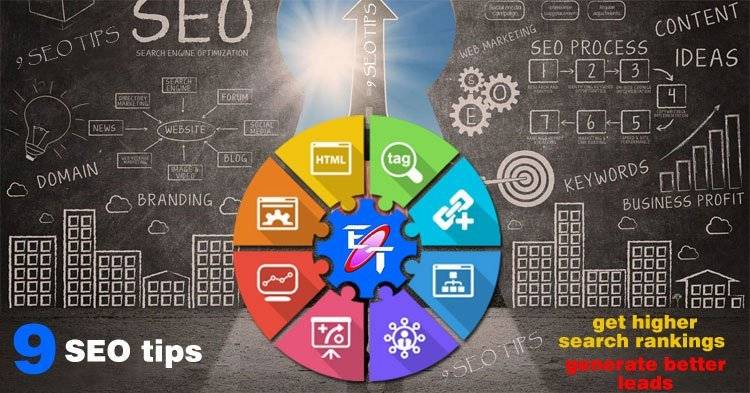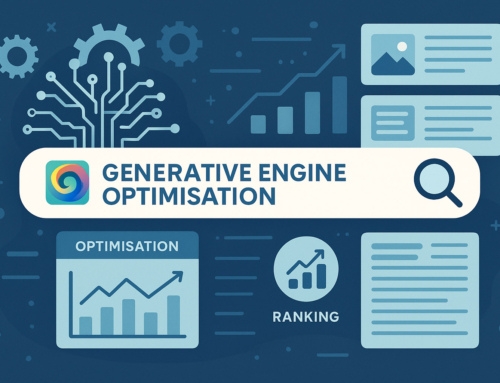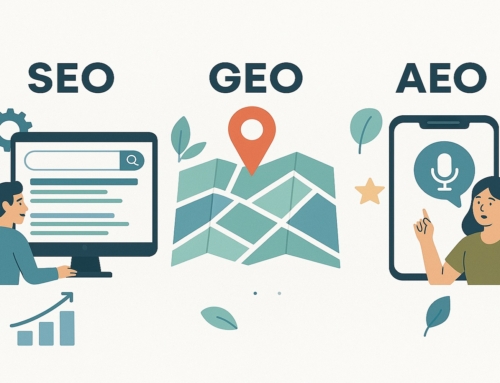
Top SEO tips for 2017 to get higher search rankings:
Although it’s nearly the end of February already (yes, already!), it’s still OK to ask how you’re doing with your New Year’s resolutions. Did you know that New Year’s resolutions are not like ordinary goals? That’s because they have a more powerful effect on our psyche than we might realise. The reason for this is that the end of one year and the start of another creates a feeling of being able to begin again and offers us another chance to reset our actions to be able to achieve our goals.
However, New Year’s resolutions are not just about personal goals – setting goals for the business year ahead is just as important. And it’s equally important to keep checking in on our goals to make sure that we’re sticking to them, as well as to ascertain whether they need any adjustments so we can stay on track for achieving them.
If you’re in business, then one of the goals in your online marketing strategy for the year ahead is most likely to be to generate quality leads for your business. And what better online audience is there for your particular business than the people who are already using the various search engines to look for your product(s) or service?
This is where SEO (search engine optimisation) comes in. SEO helps you use the power of the search engines to drive search traffic to your website, and ultimately drive up your conversion rate.
However, in today’s rapidly changing world, SEO is not something you set and forget. In their effort to ensure that their users always get the most relevant results possible for their searches, the search engines are constantly adjusting their search algorithms. The fact these algorithms are constantly evolving means you also need to keep up with what the algorithms are focusing on.
So, here are our 9 SEO tips for 2017 to help you get the most out of your SEO game this year and improve traffic to your website.
1. Speed up your website
No-one is interested in visiting a website that takes forever to load – and the search engines keep that in mind. As far back as 2010 already, Google announced that it would be using site speed as a ranking factor, so it’s no secret that speed matters.
Research has repeatedly shown that if your website takes more than 2 or 3 seconds to load, people will leave it – and the search engines will know! So, it’s very important to ensure your website loads quickly. If not, do something about it straight away by getting rid of elements that affect the speed of your site. For example, if you’re using WordPress, then get rid of any plugins that you’re not using. You can also use tools like Google’s PageSpeed Insights to find out what’s causing your page(s) to load slowly and what you can do to fix it.
2. Optimise for mobile
The mobile market is big; too big to ignore. If you haven’t paid attention to the mobile responsiveness of your website and increased the site’s loading speed on mobile devices, then you’re now skating on thin ice. Not doing so as little as two or three years ago was not a big issue but, as we said, things change quickly in the digital world, including SEO. Google has made it crystal clear that there is no longer any room for websites that aren’t optimised for mobile. So, not only will a faster loading site mean more chances to retain visitors, but being optimised for mobile is now a very big ranking signal for the search engines.
3. Implement AMP
AMP or the Accelerated Mobile Pages project is a Google initiative to build a more user-friendly mobile Web by using simpler, lighter versions of HTML and CSS to create super-quick web pages for mobile users. So, not only does AMP help address optimisation for mobile but it also solves the speed problem too.
4. Offer fresh and captivating content
In our ever-changing digital world, having high-quality, value-adding content is likely to remain the only constant. In fact, linkable, shareable content still rules the list of Google’s ranking factors.
The first step to creating quality content is really knowing your audience and what they want, so that what you create ‘clicks’ with them. Content that provides value will always click with your audience. By ‘value’ we’re not talking about giveaways or freebies; it’s about asking, “What does my audience want?” and the answer may include anything from information and entertainment to products and services and more.
So, it’s crucial you ensure your content is informative, original and relevant to your audience – that’s the only way you’ll be able to get them to stick around on your site. If you fulfil their needs, they’ll be far more open to converting into paying customers.
Don’t think you can simply saturate your content with specific keywords in order to manipulate the search engines. They’re actually smarter than that and they are very likely to respond by indexing your site for spamming. Besides, no audience is going to stick around trying to read content that’s jammed with ‘keywords’ – it’s annoying.
5. Create engaging pages
Well-structured, visually appealing web pages can help you generate leads and sales, as well as improve the search engine ranking of your website. Headings also play an important role in organising information. Content with standout headings that capture the attention of your audience will immediately draw them in for more.
However, it’s not only the nature of your headings that count – the formatting is also important, because if it makes ‘sense’ to the eye then the brain will follow suit. And the same applies for the search engine bots. For example, optimise your headings and sub-headings by using only one H1 tag (for the title) as this increases its significance for both readers and search bots. Then you can use a number of H2 to H4 subheading tags to make the rest of the content look well-ordered and professional.
6. Blog
Blogging is one of the best content marketing tactics and a great way to optimise your content for the search engines. The more (useful) content you create via your blog, the more pages you’re generating for the search engines to index.
Just remember, blogging is not primarily about selling your products or services – it’s about providing your audience with content of value (information, entertainment, things they didn’t know but need to know about your niche market) that gets them to engage with you, and the more they engage, the more likely they will link and share your content.
7. Optimise visual content
Visual content, especially video, is becoming increasingly important – it is a great supplement to text and can even replace it – and it definitely affects SEO. You can optimise visual content for the search engines and boost their SEO performance by doing things like:
- Creating titles that resonate and convey meaning
- Adding metadata and keywords
- Paying attention to the file’s size (the smaller the file the faster it will load)
- Creating a video transcript – this will help get your content to feature in the search engines
- Hosting your videos on your own site, not just YouTube
8. Continue to also focus on YouTube SEO
Did you know that around 55% of all keyword searches on Google return at least one video and that more than 80% of those videos are from YouTube?
It all makes sense of course once you realise that YouTube is the world’s second most popular search engine, with more than 3 billion searches per month. Although we said earlier to look at hosting a video on your own side rather than only on YouTube, that was not to say to ignore YouTube – that would be a mistake. So, given the stats above, also focusing on YouTube SEO will help to rank your website on Google as well as get you traffic from YouTube. A double whammy.
9. Integrate web analytics
A critical part of SEO is reporting and analytics. You cannot improve and fine-tune your digital marketing strategy or your website without understanding how the site is performing or how visitors are engaging with it.
To understand your customers’ journey, you need to know things like what content really appealed to them; what parts of your website resulted in a bad user experience; which page(s) were the least or most visited, and why; where did they stop scrolling through your content and leave.
Fortunately, there are plenty of reliable tools available, like Google Analytics, to help you keep track of your site’s performance and give you insights for improving its performance.
Support with constantly changing SEO
Ultimately, however, you cannot escape the fact that SEO changes rapidly from year to year – even from month to month is some cases. So, as business owners and marketers, it’s vital that you are able to adapt quickly or have the support of someone that can help you do so.
That said, however, nothing really beats common-sense stuff like ensuring you have useful, value-adding content on your website, you offer an engaging layout, and you engage with the actual needs of your audience.
However, if this all seems a bit overwhelming, don’t worry – help is very close at hand. Auckland’s full-service digital marketing agency Net Branding provides professional SEO services to drastically a website’s organic search score and increases the visibility of your brand online.
We’re just a phone call away – so contact us today to find out how your local SEO company, Net Branding can help your business achieve an effective online search presence that will lead to a considerable increase in sales and profitability.






